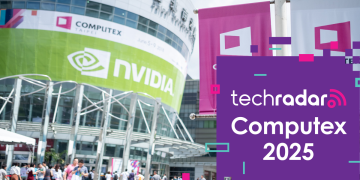By Maria Kalamatas | The Logistic News – Tech Section
Taipei, Taiwan – May 19, 2025
“We’re entering a decade where the most powerful economies won’t just export goods — they’ll export intelligence.”
— Jensen Huang, CEO, Nvidia
A Trade Show Without Illusions
Something has changed at Computex. Gone are the days when tech expos dazzled with hollow prototypes and buzzword-laden panels. This year, in the halls of Taipei, the tone was different — more deliberate, more grounded. The future isn’t coming. It’s here. And it’s operational.
Whether in AI, quantum computing, or green infrastructure, the question is no longer ‘what if’ — it’s ‘what’s next’.
Nvidia Rethinks Its Role in a Fragmented Tech World
Jensen Huang stood before a packed audience and delivered a vision that moved far beyond graphics cards. Nvidia is now positioning itself as a partner for national AI infrastructure, not just cloud-scale computing. Countries across Asia, Africa, and Latin America are building their own sovereign digital capacity — and Nvidia wants to provide the engine.
“Not every country needs to rent intelligence. Some will build it themselves,” Huang said, underscoring a shift toward digital self-reliance.
It was a message tailored not to Silicon Valley — but to the emerging digital South.
Japan Moves Fast on Quantum Integration
Meanwhile, Japan’s delegation dropped what may have been the most strategic announcement of the show: a state-backed roadmap to bring quantum computing into industrial practice. The plan includes infrastructure, regulation, and private-sector partnerships, all aimed at making Japan a global hub for post-classical computing.
Analysts said this represents not just a scientific ambition, but an economic positioning — where quantum is seen as the backbone of a future-proof supply chain.
AI Gets Simpler — and Stronger
Beyond government strategy, the floor buzzed with commercial energy. Dozens of vendors showcased modular AI tools that can be slotted into ERP systems, transport networks, and warehouse management platforms with little or no custom code.
For logistics operators, this means AI isn’t a moonshot anymore — it’s a plug-in. You don’t need a dedicated data science team to benefit. You need a roadmap, a budget, and a reason.
The Hidden Strain Behind the Innovation Boom
Yet for all the momentum, a tension ran through the conversations: talent. Companies are finding it harder to recruit the profiles they now need — not just engineers, but people who understand systems thinking, ethics, and operational complexity.
As one CTO put it, “AI is moving fast. People are not.” That gap is now seen as a core risk for adoption at scale.
What Logistics Leaders Should Take Away
For global trade and transport players, Computex 2025 delivered a clear message: the technology needed to gain an edge is no longer in R&D. It’s in deployment.
From quantum-safe data exchanges to AI-optimized routing engines, the tools are real, reliable, and ready.
The question isn’t whether you’ll use them. It’s whether you’ll be fast enough.
The Logistic News – Tech Section
Bringing you closer to the technologies that will drive the world’s next great supply chain revolution.





















